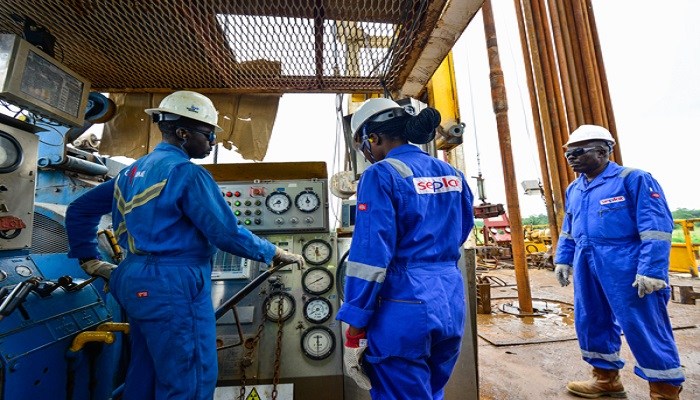The African Export-Import Bank has introduced a $3 billion revolving credit facility aimed at streamlining access to petrol, diesel, jet fuel, and other petroleum products for buyers in Nigeria, other African nations, and the Caribbean.
The initiative, announced on Wednesday, targets sourcing from African refineries to reduce reliance on costly imports.
Afreximbank projects the facility will generate $10 billion to $14 billion in trade finance over its initial three years, addressing a significant portion of the region’s estimated $30 billion annual fuel import expenditure.
The move comes as both oil-exporting and import-dependent economies grapple with volatile market conditions, including a more than 20% drop in Brent crude prices since mid-January, driven by supply shifts and concerns over a potential global trade war dampening demand.
Insurance costs for ships navigating the Red Sea have surged again following renewed Houthi attacks and subsequent U.S. airstrikes on Yemen in March, adding hundreds of thousands of dollars to the cost of transporting a typical fuel shipment, according to Reuters.
To cushion their budgets from such external shocks, African governments can shift fuel purchases to regional refineries and secure bank credit in advance.
This approach aligns with the goals of the Revolving Intra-African Oil Import Financing Programme, part of Afreximbank’s broader effort to enhance regional refining capacity and promote intra-African trade in petroleum products.
The programme seeks to leverage the growing refining capacity that Afreximbank has helped establish across the continent while aligning with the objectives of the African Continental Free Trade Area agreement, which includes facilitating intra-African trade, promoting industrialisation, and creating jobs on the continent.
“Afreximbank is the largest financier of the Dangote refinery, which commenced operations in January 2024 and is also supporting the financing of the 200,000 bpd Lobito Refinery development, building on the progress made on the 60,000 bpd Cabinda Refinery, which it also supported. In addition, the Bank has financed the refurbishment of the 210,000 bpd Port Harcourt Refinery, and recently approved financing in support of the development of BUA Refinery and Azikel Refinery, all in Nigeria.
“Through these investments, and the continual trade finance support for Société Ivoirienne de Raffinage, Cote d’Ivoire, Afreximbank is on its way to creating over 1.3 million bpd refining capacity and helping to convert the Gulf of Guinea from an exporter of crude oil into an important refining hub for the continent and the world.
“Key products to be traded under the programme are refined petroleum products, including but not limited to Premium Motor Spirit, Automotive Gas Oil, Heavy Fuel Oil, Jet Fuel, and Kerosene. The eligible exporters are refineries operating in Africa,” the bank said.
It added that the $3 billion Revolving Intra-African Oil Import Financing Programme is primarily designed to provide essential trade finance to oil traders (both African and international), commercial banks, governments—through their Ministries of Finance or Petroleum Resources/Energy—and state-owned enterprises responsible for importing refined petroleum products.
The programme supports efforts to source these products from African refineries for domestic use across the continent and, where applicable, for export.
Commenting on the launch, the President and Chairman of the Board of Directors, Afreximbank, Professor Benedict Oramah, said the programme “would galvanise efforts towards making the Gulf of Guinea a key refining hub.”
He noted that the programme will directly boost the volume of refined petroleum products produced and consumed within Africa. Beyond that, it is expected to have a multiplier effect across the downstream petroleum value chain by spurring critical investments in shipping and marine logistics to support both intra-African and international trade in crude oil and refined products.
This ripple effect, he added, will also extend to marine cargo insurance and other ancillary services within the sector.
“We want to see an increased proportion of the about 4 mbpd of crude oil produced in the Gulf of Guinea refined in Africa,”










